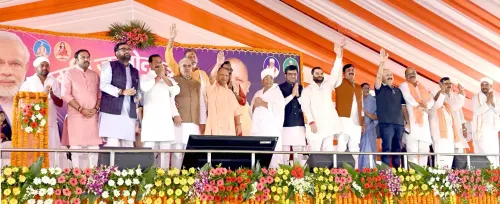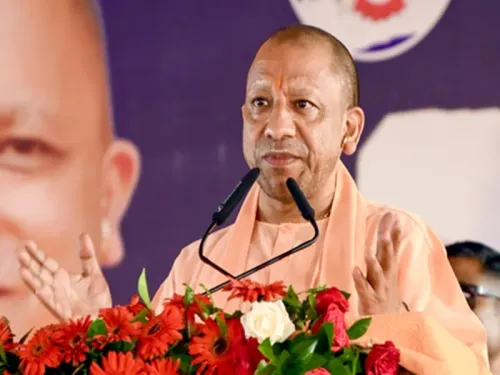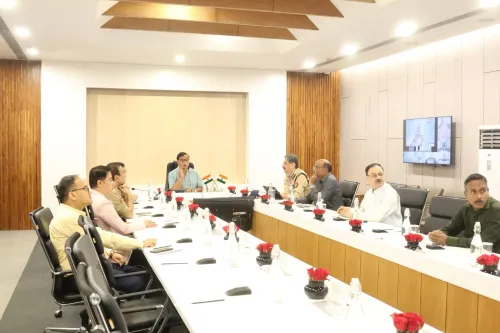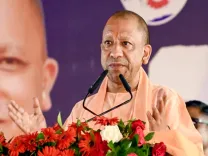Celebration of Non-Violence and Peace: President Murmu's Mahavir Jayanti Wishes
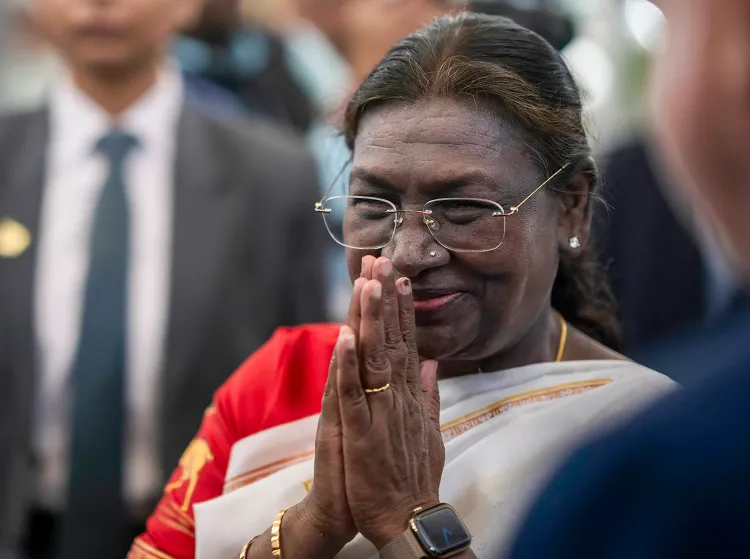
Synopsis
Key Takeaways
- President Murmu wishes the nation on Mahavir Jayanti.
- Celebration of the 2623rd birth anniversary of Lord Mahavira.
- Emphasis on non-violence and peace.
- Community activities include prayers, meditation, and charity.
- Mahavir's teachings continue to inspire millions.
New Delhi, April 10 (NationPress) President Droupadi Murmu on Thursday conveyed her sincere wishes to the citizens of India on Mahavir Jayanti, a day honoring the birth of Lord Mahavira, the 24th and final Tīrthaṅkara in Jainism. This year, the nation commemorates the 2623rd birth anniversary of this esteemed spiritual figure, celebrated with immense reverence and splendor throughout the country.
In a message posted on X, President Murmu stated, "On Mahavir Jayanti, I extend my warm congratulations and best wishes to all citizens, particularly those in the Jain community. Lord Mahavir, a true embodiment of non-violence and peace, illuminated the way for humanity with his teachings on renunciation, truth, and compassion."
"Let us collectively vow to strive for the welfare of the entire world by adhering to the principles he advocated," she remarked.
Mahavir Jayanti is regarded as one of the most important religious celebrations in Jainism, observed on the 13th day of the waxing moon in the month of Chaitra according to the Jain calendar.
As per ancient texts, Mahavira was born in 599 B.C. in Kundalagrama, located near modern-day Patna, Bihar. He devoted his life to spiritual enlightenment, discipline, and promoting fundamental Jain values: Ahimsa (non-violence), Satya (truth), and Aparigraha (non-possessiveness).
He achieved Moksha (liberation) in 527 B.C. at the age of 72.
On this sacred occasion, Jain communities nationwide engage in various religious and charitable activities. Temples become hubs of large gatherings where devotees offer prayers, meditate, and observe fasts. The idol of Mahavira is ceremoniously bathed in a ritual named abhisheka and paraded in a chariot procession called rath yatra, accompanied by devotional hymns or stavans.
Lectures delivered by Jain monks and nuns in temples guide followers along the path of righteousness as envisioned by Mahavira. Many also partake in charitable acts such as feeding the less fortunate or supporting initiatives like cow protection.
Ancient Jain temples throughout India serve as central points of celebration, attracting numerous devotees.
Moreover, Ahimsa rallies and public events advocating Mahavira's teachings of non-violence and compassion occur in various cities.

